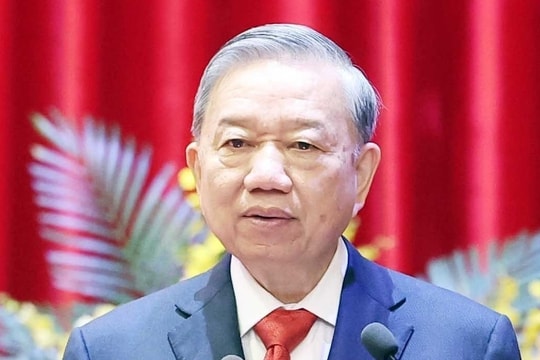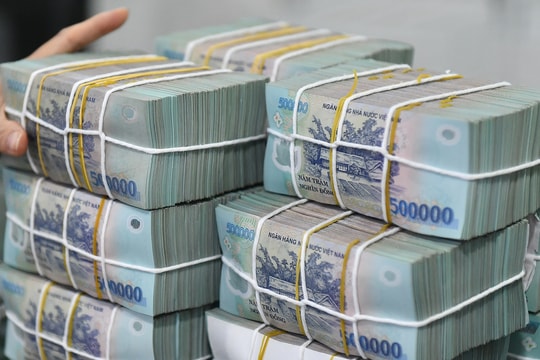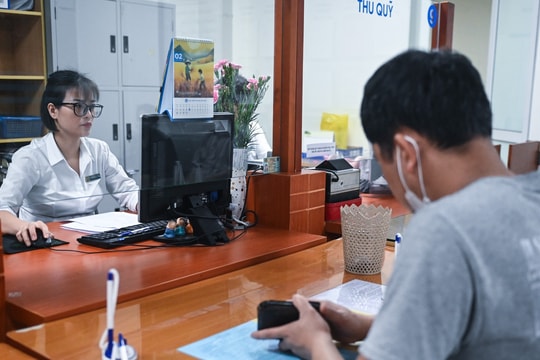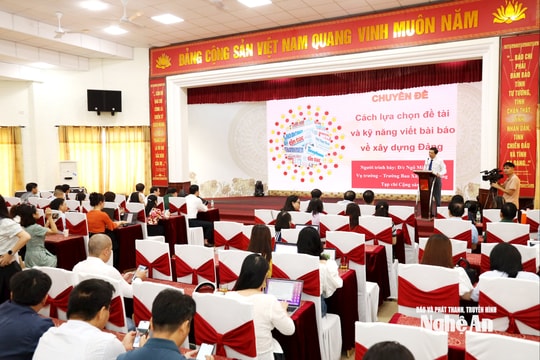The disease of 'successful solidarity'
(Baonghean.vn) - Although our Party has innovated its working style and methods in a scientific and practical direction, expanding democracy, the phenomenon of "unilateral solidarity" is still widespread. This is an alarming disease in the Party organization, cadres and Party members today.
Unity in the same direction is a phenomenon of silence, not daring to fight or due to respect, avoidance, "compromise", following the opinion of the leader, of the head, not daring to express one's own opinion, afraid of offending, afraid of conflict, afraid of being judged as not supporting the superior. Sometimes the voting rate reaches 100%; it seems like "very high unity and solidarity" but in reality it is only according to the opinion of the leader or head, not the real opinion of the whole group.
Although our Party has innovated its working style and methods in a scientific and practical direction, and expanded democracy, the phenomenon of “unilateral solidarity” is still widespread. This is an alarming disease in the Party organization, cadres, and Party members today.
There are activities and incidents that lack democracy and careful discussion before reaching consensus and decisions... From there, phenomena such as: lack of consensus, chasing after achievements, internal disunity, potential formation of interest groups, negative impacts on social ideology and psychology easily arise.
In reality, there are many times when the consensus is very dangerous and harmful. When planning, promoting, rotating cadres, when deciding on an important, sensitive issue, seeing that it is not right but still "silence is golden", pleasing the leader. This is very dangerous, especially in localities and units where the leader lacks morality, lacks transparency, and is self-interested. Some people even use all kinds of very sophisticated "tricks": "Sensitive" issues are often arranged to be brought up when the conference is about to end, the content is brief, incomplete, choosing the first speaker who is sure to "follow, speak up" so that the next person is afraid if he speaks differently, or for some reason, those who often speak frankly are absent, or using "the strictness of the process" to legitimize, overwhelm, or vote by raising hands instead of secret ballot,... In essence, that is "fake democracy", monopolizing power, authoritarianism, despotism, and purposeful deception.
Everyone knows that unity creates invincible strength. But that is true unity. To have true unity, we must promote democracy, practice self-criticism and criticism seriously. In which, the opinions expressed are all based on reality, constructive in nature and respected.
In Regulation No. 37-QD/TW issued on October 25, 2021, with19 things party members are not allowed to do, there are two completely new provisions, which are Article 3 and Article 13. In which, Article 3 stipulates that party members are not allowed to "refute, deny, or distort Marxism-Leninism and Ho Chi Minh's thought; not fulfill their responsibilities as role models; individualism, opportunism, and self-interest; "term thinking", solidarity in the same direction, formal democracy, not defending what is right, not fighting what is wrong; authoritarianism, dictatorship, bureaucracy, and being distant from the masses". Thus, the members of the Party Committee and leaders also bear some responsibility for the lack of solidarity, building, and fighting to protect what is right, criticizing what is wrong, and compromising with opportunistic and profiteering individuals.
The disease of “unilateral solidarity”, which is essentially formal democracy, weakens and is hidden under the guise of “following procedures”, “following regulations”, “democracy”, damaging the strength of the great national solidarity bloc. It is also the root cause of internal disunity, potential corruption, negativity, group interests, eroding and reducing the people’s trust in the Party and the State.
To overcome the disease of "unilateral solidarity and formal democracy", the Party must thoroughly grasp the principle of democratic centralism; improve the capacity of mastery and responsibility for the activities of Party committees and organizations; actively invest in thinking, discussing, and building policies and resolutions; and avoid insensitive, superficial, compliant, and perfunctory thinking.
There should be specific regulations on the heads of Party committees and organizations, promoting the responsibility to set an example, strictly implementing the principle of democratic centralism, working regulations; self-criticism and criticism; encouraging, receptive, respecting and listening to the opinions of cadres and Party members, including opposing opinions. Creating an atmosphere of frank and constructive debate.
For important work, it is necessary to be public, transparent, and respect the opinions of the masses.
During his lifetime, President Ho Chi Minh affirmed that unity is the invincible strength of our Party. In his Testament, he first talked about the Party and devoted the most time to it, focusing on two major issues: Party unity and revolutionary ethics of cadres and Party members. These can be called the essential things.

.jpg)




.jpg)

